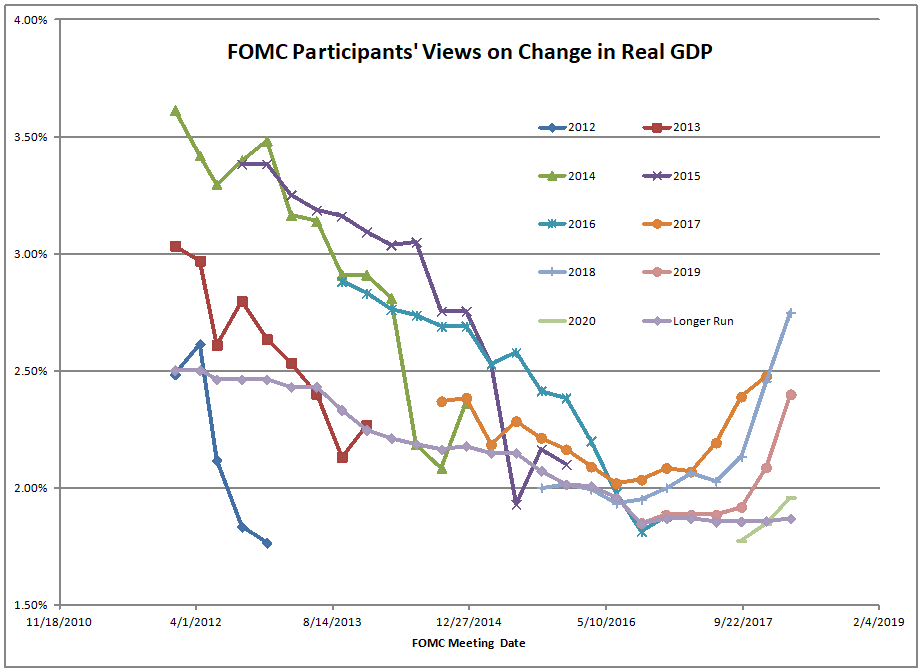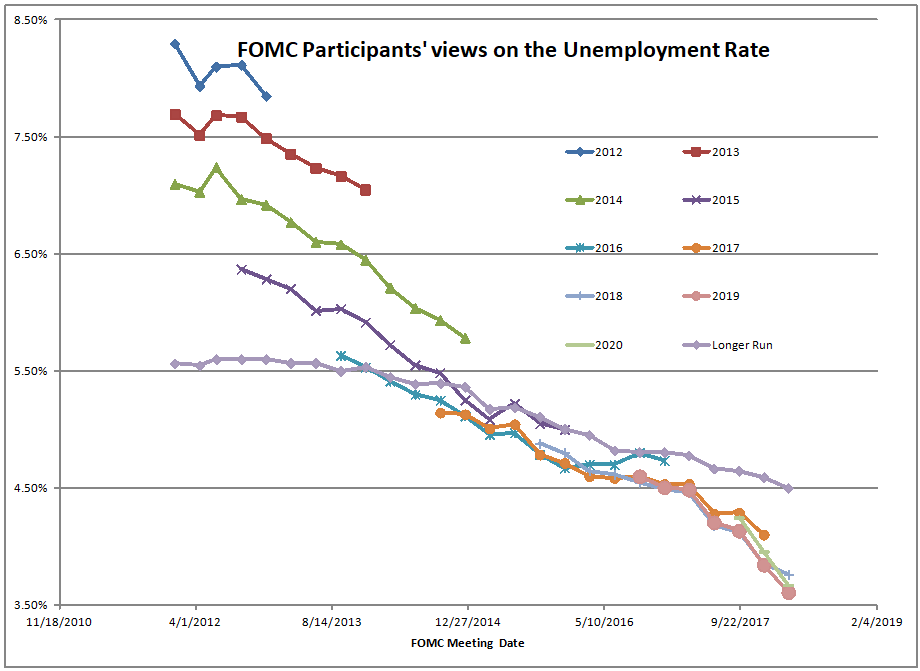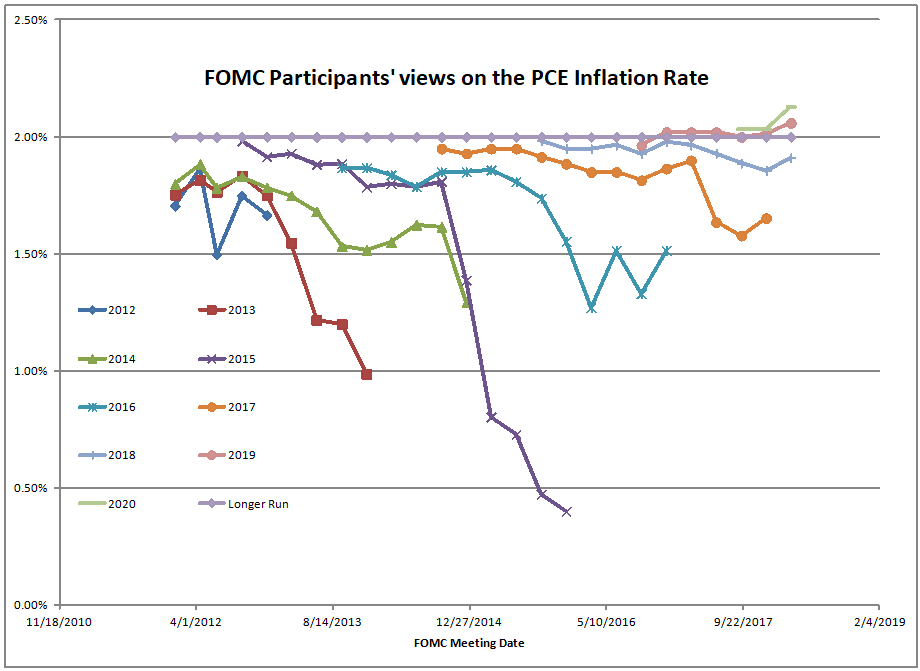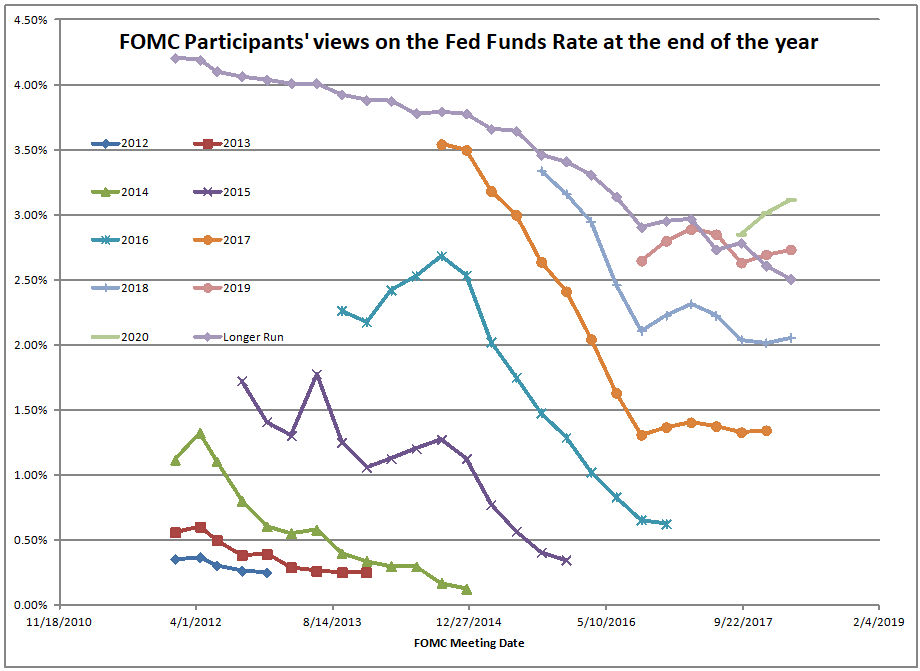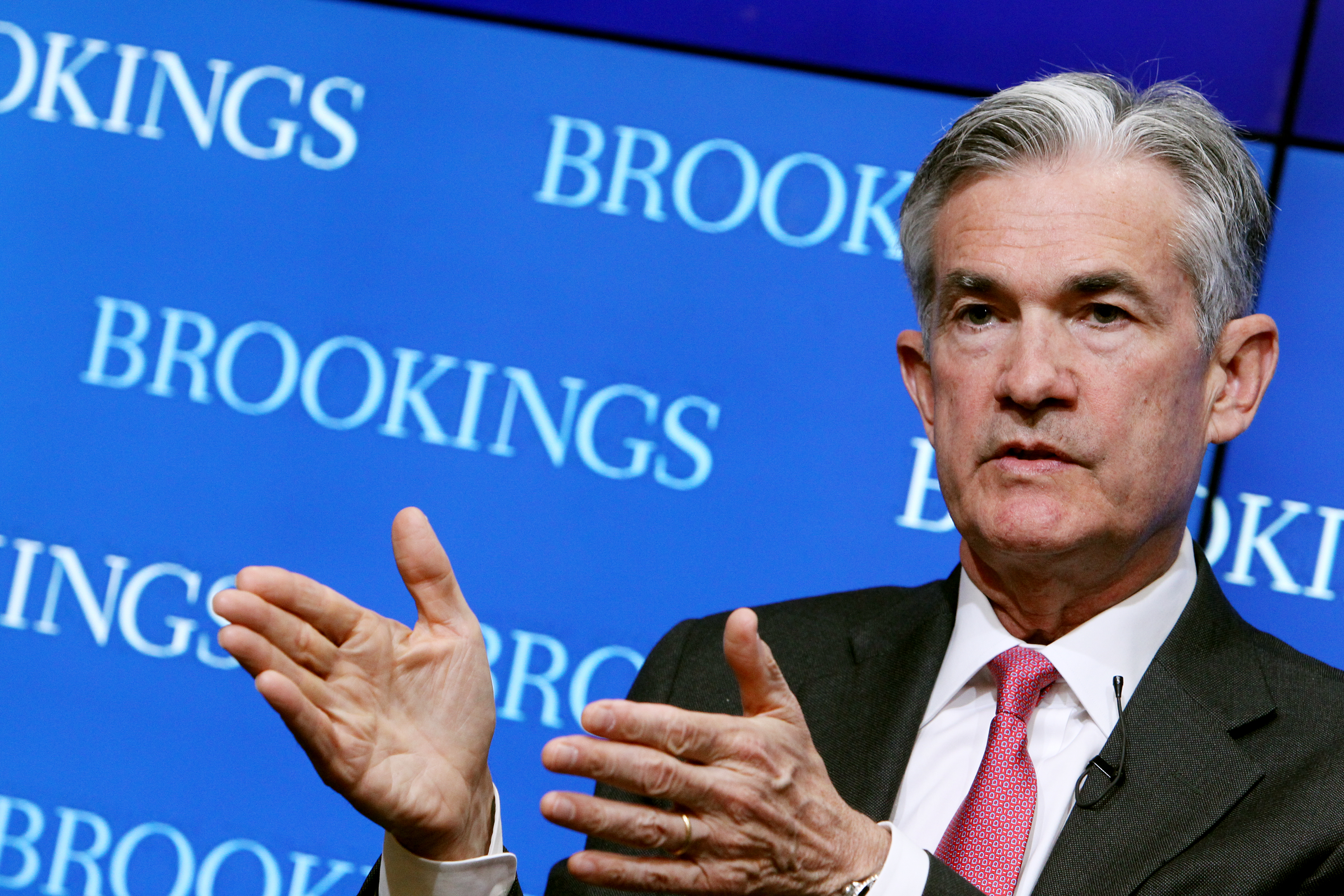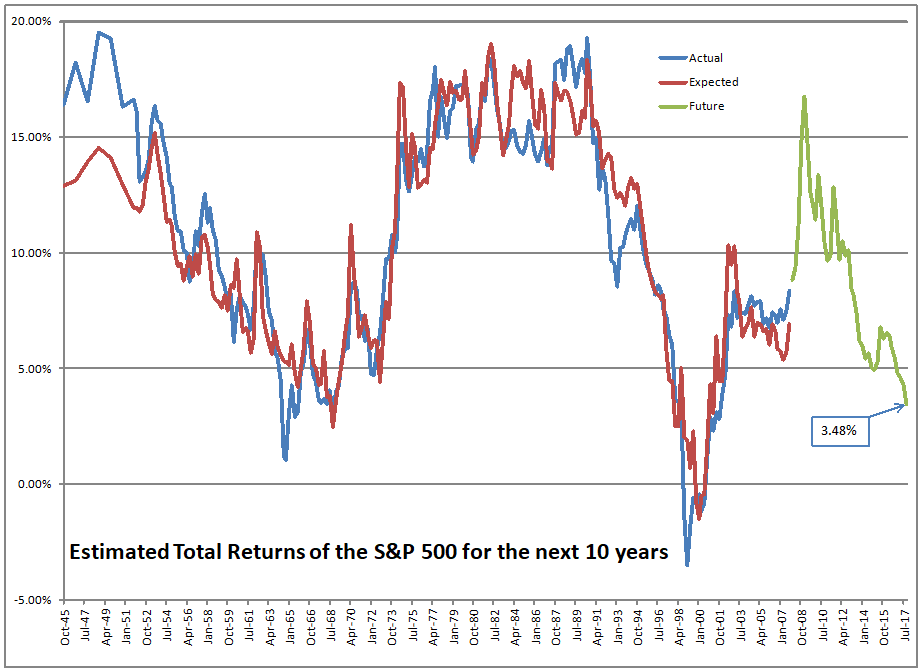Notes on the Fed Announcements

==========================
Listening to the Fed Chair’s press conference, there was one thing where I disagreed with what Powell was saying.? He said a few times that they only made one decision at the FOMC meeting, that of raising the Fed Funds rate and the reverse repo rate by 0.25%.? They made another decision as well.?The decided to raise the rate of quantitative tightening [QT] by increasing the rate of Treasury, MBS and agency bonds rolloff by $10B/month starting in April. They did that by increasing the rate of reduction of MBS and agency bonds from $8B to $12B/month, and Treasuries from $12B to $18B/month. The total rate of QT goes from $20B to $30B/month.? This may raise rates on the longer end, because the Fed will no longer buy so much debt.
There was also a little concern over people overinterpreting the opinions of the Fed Governors, especially over the “dot plot,” which shows their opinions over real GDP growth, the unemployment rate, PCE inflation, and the Fed funds rate.? My point of view is simple.? If you don’t want people to misinterpret something, you need to defend it or remove it.
Personally, I think the FOMC invites trouble by doing the forecasts.? First, the Fed isn’t that good at forecasting — both the staff economists and the Fed Governors themselves.? Truly, few are good at it — people tend to either follow trends, or call for turns too soon.? Rare is the person that can pick the turning point.
Let me give you the charts for their predictions, starting with GDP:
The Fed Governors have raised their GDP estimates; they raised the estimates the most for 2018, then 2019, then 2020, but they did not raise them for the longer run.? I seems that they think that the existing stimulus, fiscal and monetary, will wear off, and then growth will return to 1.8%/year.? Note that even they don’t think that GDP will exceed 3%/year, and generally the Fed Governors are paid to be optimists.? Wonder if Trump notices this?
Then there is the unemployment rate.? This graph is the least controversial.? The short take is that?unemployment rate estimates by the Fed governors keep coming down, bottoming in 2019, and rising after that.
Then there is PCE Inflation.? Estimates by the Fed Governors are rising, and in 2019 and 2020 they exceed 2%.? In the long run the view of the Fed Governors is that they can achieve 2% PCE inflation.? Flying in the face of that is that they haven’t been able to do that for the duration of this experiment, so should we believe in their power to do so?
Finally, there is the Fed Funds forecast of the Fed Governors — the only variable they can actually control. Estimates rose a touch for 2018, more for 2019, more for 2020, and FELL for the long run. Are they thinking of overshooting on Fed Funds to reduce future inflation?
Monetary policy works with long and variable lags, as it is commonly said.? That is why I said, “Just Don?t Invert the Yield Curve.”? Powell was asked about inverting the yield curve at his press conference, and he hemmed and hawed over it, saying the evidence isn’t clear.? I will tell you now that if the Fed Funds rate follows that path, the Fed will blow something up, and then start to loosen again.? If they stop and wait when 10-year Treasury Note yields exceed 2-year yields by 0.25%, they might be able to do something amazing, where monetary policy hits the balancing point.? Then, just move Fed funds to keep the yield curve slope near that 0.25% slope.
There would be enough slope to allow prudent lending to go on, but not enough to go nuts.? Much better than the present policy that amplifies the booms and busts.? The banks would hate it initially, and regulators would have to watch for imprudent lending, because there would be no more easy money to be made.? Eventually the economy and banks would adjust to it, and monetary policy would become boring, but predictably good.


